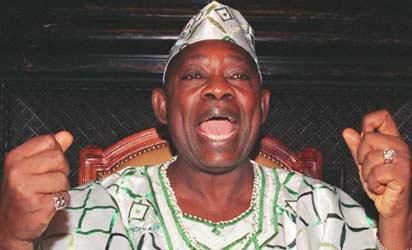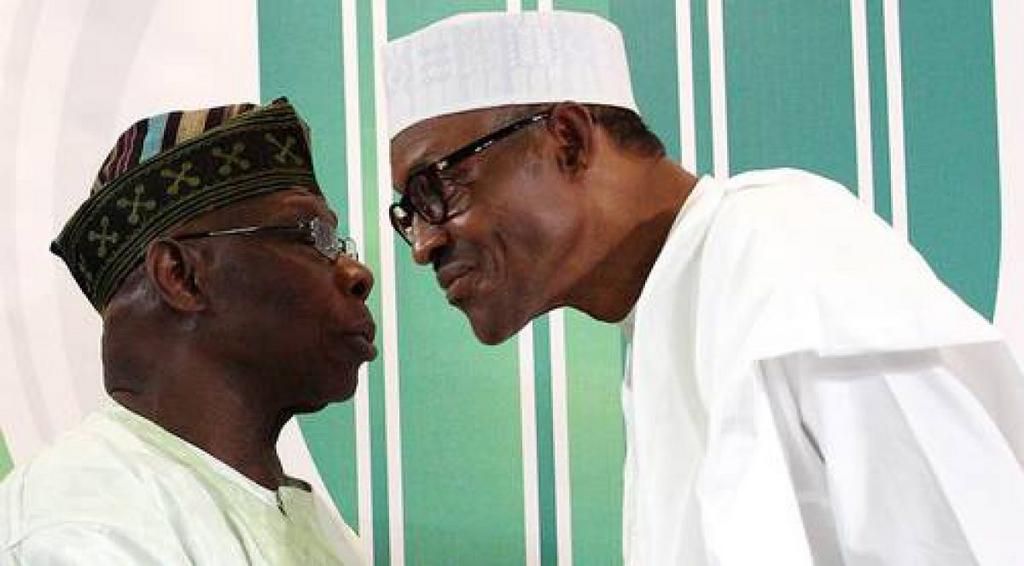June 12: How Abiola's mysterious death flamed the struggle for democracy
)
Chief Moshood Kashimawo Olawale (MKO) Abiola's passing on Tuesday, July 7, 1998, sent shockwaves throughout Nigeria. This seismic event shattered the hopes many Nigerians had harboured since the June 12, 1993, presidential election.
Abiola's death shook Nigeria to its core and expectedly so, owing to the circumstances surrounding the unfortunate incident as well as the turmoil in the five years preceding it.
The business mogul died during his arduous quest for justice and the restoration of democracy and democratic values to Nigeria. Following the annulment of the June 12 election, which he was presumed to have won by a wide margin, Abiola stoutly took on the military regime.
However, his struggle for Nigeria's democratic transition faced immense challenges. An initially demanding situation quickly snowballed after General Ibrahim Babangida's departure amidst public outcry.
ALSO READ: June 12 annulment – what happened?
This paved the way for General Sani Abacha's even more authoritarian rule, who forcefully took power from the interim government led by Chief Ernest Shonekan.
Abacha was a strict military dictator who took no prisoners, so his ascension marked a dark turn, plunging Nigeria into one of its most repressive periods.

Abiola's fight for his June 12 mandate
The period was marked by the persecution of every dissenting voice, brutal suppression of human rights, killings, maiming, and intimidation of anyone who refused to comply with the new order.
Amidst this intolerable political environment, Abiola trudged on in his unyielding characteristic manner. This conviction led to the famous Epetedo declaration on June 11, 1994, where the serial industrialist proclaimed himself as Nigeria's democratic leader.
This declaration further infuriated the intolerant Abacha regime and unleashed its worst dictatorial tendency. Abiola was subsequently arrested and detained on charges of treason, leading to pressure from local and international stakeholders for his release.
![MKO Abiola in a Black Maria [Sahara Reporters]](https://image.api.sportal365.com/process/smp-images-production/pulse.ng/26072024/ccd10ca9-cf53-4ffb-a4fe-4ad2499ddb51)
Abiola's mysterious death
During his solitary confinement, Abiola's second wife, Alhaja Kudirat Abiola, was assassinated in Lagos in 1996 after declaring public support for her husband. Though never admitted, it was widely believed that the regime orchestrated her death.
The incident heightened fears that Kudirat's husband may also suffer a similar fate at the hands of the Abacha regime. However, fate dealt an interesting twist.
On June 8, 1998, Abacha mysteriously met his demise, creating a window of hope for Abiola's liberation and for millions of Nigerians who had clung on to the promises of Hope 93.
ALSO READ: The June 12, 1993 Presidential Election: A defining moment in Nigeria's democratic journey
Unfortunately, that excitement was short-lived. Just a month later, on July 7, 1998, Abiola himself died under similarly mysterious circumstances, plunging the nation into a fresh turmoil.
Alleged US involvement in Abiola's death
)
Abiola's death rubbed many Nigerians the wrong way; it was a heartbreaking event, which many found difficult to accept, perhaps also due to the circumstances surrounding it.
Upon the news of Abacha's passing, a wave of joy swept Nigeria as citizens anticipated MKO's imminent release from detention on that fateful day, July 7, 1998.
As part of the formalities before his eventual release, Abiola met with a group of American diplomats, including Thomas Pickering and Susan Rice, at a government guest house in Abuja.
The delegation's visit aimed to address the tense political situation and advocate for a peaceful resolution, but that was when tragedy struck.
Rice served Abiola tea during the meeting, and things immediately went downhill. The billionaire suffered a sudden heart attack, collapsed to the ground and died.
This incident triggered suspicions of an alleged U.S. involvement in Abiola's death. Despite evidence to the contrary, there remains an enduring belief in Nigeria that the American diplomat had poisoned Abiola.
Independent autopsy carried out and witnessed by physicians and pathologists from the Nigerian government, Nigerian Medical Association, Canada, UK and the US found substantial evidence of longstanding heart disease.
Another conspiracy surrounding his death was a claim by Abacha's Chief Security Officer, Hamza al-Mustapha, who alleged that Abiola was beaten to death.
Though he claimed to have video and audiotapes showing how Abiola was beaten to death, al-Mustapha has yet to come forward with the release of such evidence or how it was obtained in the first place.
Though available evidence pointed to a natural cause of death, it was clear that during his time in detention, the philanthropist was denied access to sufficient medical attention for his existing health conditions.
Nigeria's transition to civilian rule
)
While Abiola's death left a disappointing feeling across the country, Nigerians remained resolutely undeterred in their demand for the restoration of democracy.
General Abdulsalami Abubakar, sworn in immediately after Abacha's death, promised to hold elections within a year and transfer power to an elected president.
True to his words, Abubakar established the Independent National Electoral Commission (INEC) and appointed the former Supreme Court Justice Ephraim Akpata as its chairman.
Consequently, INEC held a series of elections, first for Local Government Areas in December 1998, then for State Assemblies and Governors, National Assemblies and finally for the President on 27 February 1999, won by a former military ruler, Olusegun Obasanjo.
The Presidential election was unprecedented in the history of the country. As an atonement for Abiola's death and the annulment of the June 12 election, the two main political parties agreed to field candidates from Abiola's region, the South-West.
This arrangement pitched Obasanjo of the Peoples Democratic Party (PDP) against Olu Falae, whose Alliance for Democracy (AD) formed a coalition with the All People's Party (APP) in the presidential contest.
Obasanjo's emergence was significant for two reasons: he was the last military ruler who voluntarily handed over power to a civilian president in 1979, and secondly and perhaps most importantly, he was a Yoruba man from Ogun State, the same state MKO Abiola hailed from.
Abubakar quashed the fears of a repeat of the 1993 incident and ended a 14-year foray of the military into Nigeria's governance, when he handed over power to Obasanjo on May 29, 1999.
How June 12 became a symbol of Nigeria's democracy

Though June 12 remained the most significant date in Nigeria's democratic calendar, May 29 was the official Democracy Day celebration until 2018.
Having been given the opportunity to choose a date for his swearing-in in 1999, Obasanjo opted for May 29. Many Nigerians perceived Obasanjo's decision as an attempt to erase MKO's legacy and belittle his struggle.
However, many states in the South-West, pioneered by Lagos, set aside June 12 as a public holiday to honour Abiola.
However, the day became official democracy day in 2018. In a statement on 6 June 2018, then-President Muhammadu Buhari changed the Democracy Day to 12 June in honor of the 12 June 1993 presidential election and its winner, Abiola.
On 11 June 2019, Buhari assented to a Bill amending May 29, previously set aside as a public holiday for the celebration.
)
![Aisha blows hot on Security forces; Y7ou won't believe what she said [VIDEO]](https://image.api.sportal365.com/process/smp-images-production/pulse.ng/17082024/1f976edf-1ee2-4644-8ba1-7b52359e1a8f?operations=autocrop(640:427))
)
)
)
![Lagos state Governor, Babajide Sanwo-Olu visited the Infectious Disease Hospital in Yaba where the Coronavirus index patient is being managed. [Twitter/@jidesanwoolu]](https://image.api.sportal365.com/process/smp-images-production/pulse.ng/16082024/377b73a6-190e-4c77-b687-ca4cb1ee7489?operations=autocrop(236:157))
)
)
)
)
)
)
)
)
)
)
)